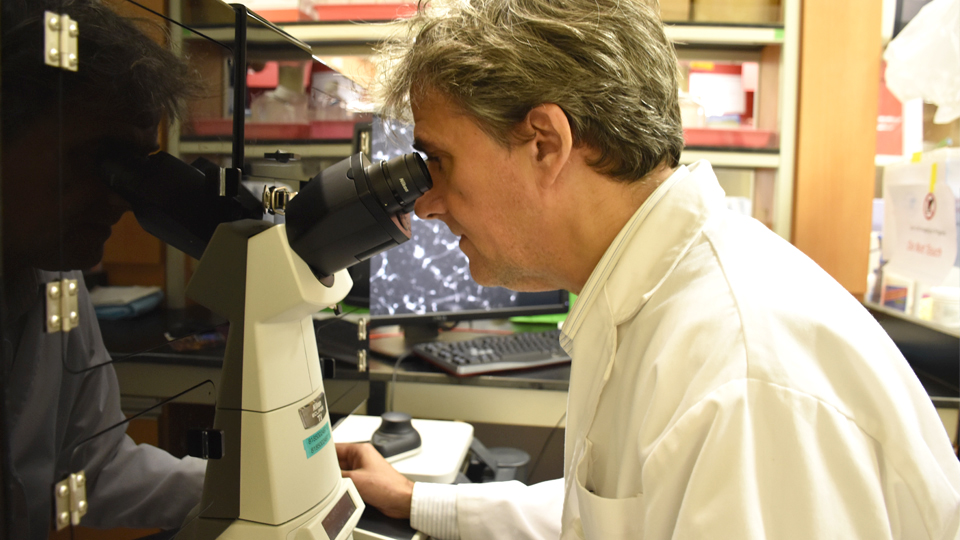A potential new treatment method for melanoma skin cancer
Published: 02 Nov 2018

Researchers at the National University of Singapore’s Yong Loo Lin School of Medicine (NUS Medicine) have discovered a small man-made molecule that can activate a receptor in the cell membrane to “kill” tumour cells in melanoma skin cancer, controlling the growth of the cancer cells. This process is activated once the molecule is injected into the body. The small molecule NSC49652 will bind to a death receptor p75NTR in the cell membrane, starting a process which then causes melanoma cells to die.
Skin cancers are divided into melanoma and non-melanoma skin cancer (NMSC). The incidence of both non-melanoma and melanoma skin cancers has been increasing over the past decades. Currently, between two and three million non-melanoma skin cancers and 132,000 melanoma skin cancers occur globally each year. In Singapore, NMSC is much more common than melanoma, which behaves much more aggressively than NMSC as it can spread to other organs in the body. Melanoma skin cancer is most prevalent in Northern Europe and the United States.
Started in 2013, the research team screened a prototype library of 1,580 compounds from the United States’ National Cancer Institute, and chose the most responsive molecule to further their tests. The research was completed in early 2018, and was published online in Cell Chemical Biology, a chemistry and biology journal, on 4 October 2018.
The research team comprises scientists from NUS Medicine’ Department of Physiology, NUS’ Department of Pharmacy and Life Sciences Institute, University of Calgary’s Cunming School of Medicine, as well as University of Virginia’s Department of Chemical Engineering.
Current treatment of melanoma skin cancer stands at a success rate of just 55 per cent. The finding by Professor Carlos Ibanez of the Department of Physiology thus potentially offers a new treatment method for the remaining 45 per cent of melanoma skin cancer patients.
“Patients and their cancers are heterogeneous. There is no one cure. The current treatment for skin cancer only works for 55 per cent of patients. It justifies to have different types of treatment for the rest of the patients,” he said.
The research team currently has a two-pronged approach in advancing the research. They are trying to improve the molecule to prolong the survival of melanoma skin cancer patients, while screening more existing molecules in search of something even more potent to target the cells in melanoma skin cancer.
“This research is very interesting and opens up exciting possibilities of various possible targets for treatment of cancers. Melanoma is one of the top three skin cancers, and has a higher mortality and morbidity rate compared to the rest. It is compelling to see when this research moves from bench-to-bedside clinical trials as it provides options in treatment in targeting metastatic disease that may have been unresectable or require potentially more toxic therapeutics,” said Dr Sue-Ann Ho Ju Ee, Consultant, Division of Dermatology, National University Hospital.
See press release.
News Coverage

